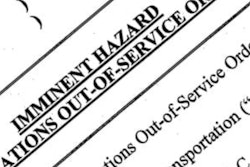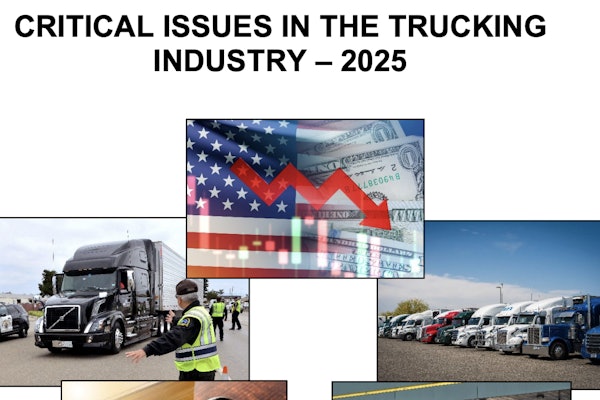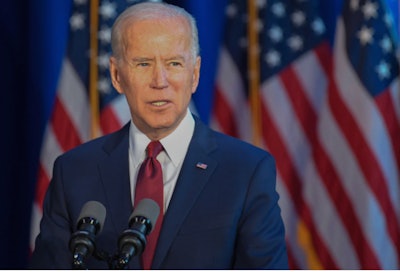
Major trucking industry organizations have reacted to the $2 trillion, eight-year infrastructure program introduced Wednesday, March 31 by President Joseph Biden.
While the groups say they appreciate Biden's plan to improve roads and bridges, they do raise concerns about other aspects, including and especially how it will be paid for. Biden's plan calls for raising the corporate tax rate from 21% to 28%, and raise tax rates on the nation's wealthiest individuals.
The organizations have all had their stay.
Truckload Carriers Association
TCA President John Lyboldt has issued the following statement in regard to the Biden's plan:
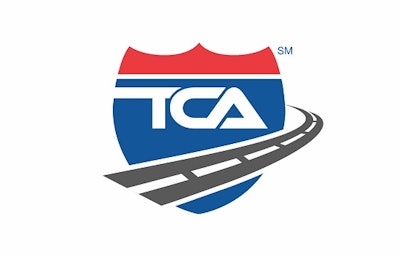
"Additionally, the inclusion of any language that jeopardizes the independent contractor business model, which has proven itself in our industry as a pathway to the American dream, is unnecessary in a plan that should be devoted to the development of a world-class network of interstates dedicated to serving the American public.
"TCA remains committed to supporting sound efforts that seek to rebuild our roads and bridges to a standard that is the envy of the world and which allows for our professional truck drivers, including independent contractors, to efficiently and safely deliver our nation’s freight. We will be at the table on these issues, rest assured.”
NATSO
NATSO, the trade association representing the nation’s truckstops and travel plazas, issued the following statement in response to Biden's infrastructure proposal. Lisa Mullings, president and CEO of NATSO. said:
“NATSO is encouraged by the Biden Administration’s commitment to the nation’s immediate and long-term infrastructure needs as outlined in today’s proposal.
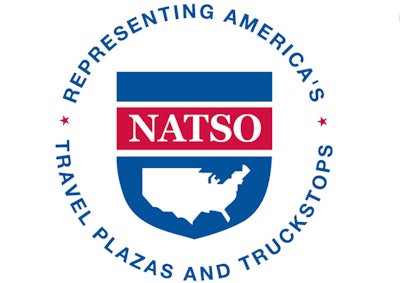
"NATSO and its member locations are eager to work with the Administration to advance its infrastructure objectives, including building a reliable and safe nationwide network of electric vehicle charging stations.
"Any effort to develop a nationwide network of charging stations will only succeed if there is a clear, unambiguous policy framework that harnesses the core competencies of the utility and retail fuel sectors. There should be a very strong business case for both utilities and fuel retailers to work together to create a nationwide network of fast charging stations.
"The utility sector is best suited to perform the generation development and power grid restructuring that will be needed to meet new demand, while fuel retailers are best positioned to own and operate EV charging stations and provide transportation energy to consumers.
"The competitive market dynamics that govern the retail fuel market today should be replicated to accommodate electric vehicles. The consumer should have multiple charging options all competing for their business on price, speed, and quality of service.
"As the Administration and Congress work toward more detailed, concrete proposals, we urge them to ensure that there is a productive partnership between the utility sector and fuel retailers for electric vehicle charging stations. We are optimistic that today’s proposal is a step in the right direction.
"As an industry that depends on the efficient, safe movement of motorists and goods along the Interstate Highway System, we understand that infrastructure is the key to a strong economy.
"Policymakers should therefore seek self-sustaining infrastructure funding mechanisms, such as increasing the motor fuels taxes or a vehicle-miles traveled tax, rather than imposing corporate tax increases, which will hinder the economic recovery of businesses that have yet to emerge from the pandemic.”
American Trucking Associations
American Trucking Associations President and CEO Chris Spear issued the following statement regarding the Biden Administration’s proposed infrastructure plan:

“We do not believe the Administration’s funding proposal is politically tenable nor a reliable long-term solution to the shortfall facing the Highway Trust Fund. We also disagree with certain provisions – especially those related to labor – that are counterproductive to economic growth and will only serve as political poison pills. However, the President’s broader plan is an important marker as Congress begins work on a surface transportation reauthorization bill. ATA recognizes this is the beginning of the legislative process, not the end.
"The trucking industry is committed to being a constructive partner throughout the legislative process and will continue to work with lawmakers on both sides of the aisle on a funding mechanism that is equitable, sustainable, user-based and can provide the foundation our economy needs over the long-term.”
Owner-Operators Independent Drivers Association
A spokesperson with the Owner-Operator Independent Drivers Association said the group is holding off on commenting until more comes out about trucking-specific provisions in the plan.







